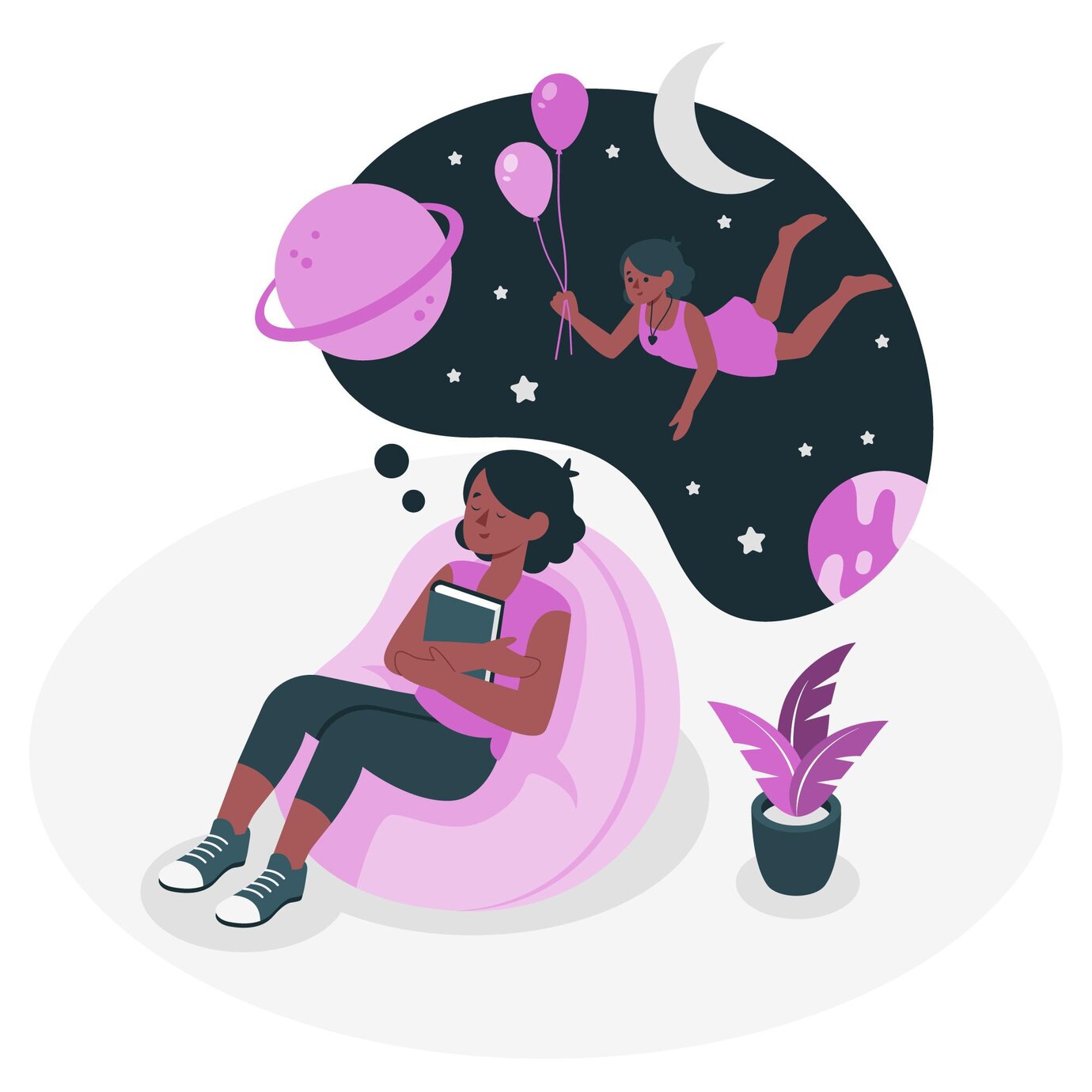BookTok has been thriving ever since the pandemic. For those of you that may be unfamiliar with BookTok, it’s a community on TikTok (a commonly used app) dedicated to reading, literature and book-related content. If you’ve used TikTok before, there’s a good chance you’ve come across some BookTok content without even realizing it. It could’ve been an author promoting their book on the app with the hopes of improving their sales, a fan edit about the book, or a user rating/talking about a particular book. Because of the lockdown in 2020, many people picked up reading, writing or creating content about books to pass the time and that’s how I was introduced to BookTok.
I chose to explore this topic more today because during my last doom-scroll on TikTok, I came across an interesting term being used again by content creators. The term is maladaptive daydreaming (MD), and it’s a form of excessive daydreaming in which a person creates distance with reality and engages in daydreams which have “movie-like plots” (Nowacki & Pyszkowska, 2024). For example, imagine yourself being thrown into the world of the Hunger Games as a tribute or as the new main character in the show you’re watching no matter what it may be based on. Typically, daydreaming isn’t a big deal and many people do it. With MD, however, it’s commonly characterized as being disruptive to one’s life because human companionship, responsibilities, and everyday activities can be neglected in the process (Dao &. Alexandrovna, 2025). MD can also be described as an addiction, and people who engage in it commonly find themselves lost in a trance and struggle with the urge to stop doing it (Thomson & Jaque, 2023).
MD can be done with T.V. shows, movies, video games or books. While researching this topic, I came across this article by Dao and Alexandrovna (2025) and I found their findings worth sharing, especially since it relates to reading. It should be noted though that despite the findings being correlational (meaning that no direct conclusion could be drawn so there could be another explanation for the findings), the researcher’s hypotheses were well-supported with positive associations. The key finding that stood out to me was that lonely Vietnamese adolescents who read more novels online tend to engage in MD more in an attempt to feel better and address their unmet emotional needs. Reading essentially promoted MD, but on the flip side, loneliness could be compelling these people to seek comfort and connection in an imaginary world. Nevertheless, I think this research paper did a great job in illustrating how MD is not an entirely harmful practice, but that isn’t what concerns me per say.
Many of the short videos I’ve seen about MD in the BookTok community are informational, talking about how easy it is to slip into an alternative reality with the characters from your current read; however, many users claim they only engage in MD instead of ordinary daydreaming and many users in the comment section believe and/or convince themselves they do it too. This worries me because everything online should be taken with a grain of salt and you should not be quick to self-diagnose yourself. If you have concerns about your physical or mental health, reaching out to your general physician or another professional like a nurse or counsellor is the next best step. Additionally, as Dao and Alexandrovna (2025) point out, MD is not an official disorder as of yet, but there is significant work being done to have it recognized as one because it does impact mental health. Practicing MD regularly was found by the researchers to increase feelings of guilt, anxiety or sadness, while negatively impacting academic commitments and relationships.
I know much of the information I provided initially illustrates MD as a problem or impairment, with the slight exception of Dao and Alexandrovna’s (2025) study, but it also has some benefits which I wanted to highlight now. People who practiced MD in moderation had better creativity and problem-solving skills, and the practice can be used for fulfilling unmet needs whether it is realistic (like loneliness) or not. I don’t know about you, but I would certainly love to imagine myself in a ballroom, promenading in a gown from the regency era (*cough cough* Bridgerton universe), because I know I will never get to experience that today. Moreover, according to Thomson and Jaque (2023), MD can also be a great mental break for some people. It can allow people to forget what’s happening in the present and focus on a positive future which may or may not happen (though if the daydream is rooted within a fantasy plot, I hate to be the bearer of bad news, but there’s a good chance it sadly may not come true)!
Long story short, immersing yourself in another world is not harmful to your everyday functioning, but as with everything in life, moderation is key.
References
Dao, P. Q., & Alexandrovna, P. A. (2025). Loneliness as a motivating factor for maladaptive daydreaming among vietnamese adolescents: The role of online novel reading. Psychology, Health & Medicine. https://doi-org.proxy.lib.sfu.ca/10.1080/13548506.2025.2486506
Nowacki, A., & Pyszkowska, A. (2024). It is all about discomfort avoidance: Maladaptive daydreaming, frustration intolerance, and coping strategies – A network analysis. Current Psychology: A Journal for Diverse Perspectives on Diverse Psychological Issues, 43(34), 27447–27455. https://doi-org.proxy.lib.sfu.ca/10.1007/s12144-024-06382-x
Thomson, P., & Jaque, S. V. (2023). Creativity, Emotion Regulation, and Maladaptive Daydreaming. Creativity Research Journal, 37(1), 94–103. https://doi-org.proxy.lib.sfu.ca/10.1080/10400419.2023.2230022
Image courtesy of Freepik.com
Note: The Free Your Mind Mental Health Society is an independent youth-led organization. The contents of this blog are not intended to be a substitute for professional medical advice, diagnosis, or treatment. Always seek the advice of your physician or another qualified health provider with any questions you may have regarding a medical condition. In the event of a medical emergency, please call your doctor or 911 or other local emergency numbers immediately.



